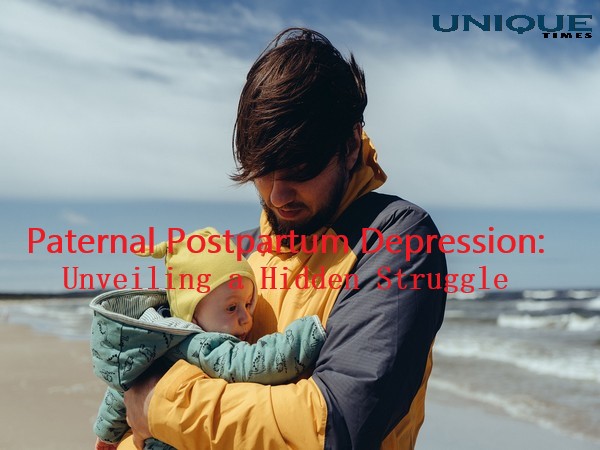Shedding Light on Postpartum Depression in Fathers

Parenthood is a transformative journey that brings with it a spectrum of emotions, from overwhelming joy to unexpected challenges. While postpartum depression in mothers is widely recognized, it’s important to acknowledge that fathers can also experience this emotional roller coaster. Surprisingly, around 10% of men report symptoms of depression following the birth of their child. In this blog post, we dive into the topic of postpartum depression in fathers, shedding light on this often overlooked aspect of parenthood.
- Beyond the Baby Blues: Recognizing Postpartum Depression Postpartum depression is not limited to mothers alone. Fathers can also experience a range of emotions, including sadness, anxiety, and even guilt, in the postpartum period.
- Unraveling the Causes: Factors Behind Paternal Postpartum Depression The transition to parenthood brings a myriad of changes – from sleep deprivation to shifting responsibilities. Explore the factors that contribute to paternal postpartum depression and how societal expectations play a role.
- Stigma and Silence: Why Paternal Postpartum Depression Goes Unnoticed Despite its prevalence, paternal postpartum depression often goes unnoticed and untreated due to societal norms that discourage men from expressing vulnerability and seeking help.
- The Impact on Families: Recognizing the Ripple Effect Postpartum depression in fathers doesn’t just affect the individual; it has a ripple effect on the entire family dynamic. It’s crucial to address this issue to ensure the well-being of both parents and the child.
- Breaking the Silence: Encouraging Open Conversations The first step towards addressing paternal postpartum depression is fostering an environment where fathers feel comfortable discussing their emotions. By breaking the silence, we can create a supportive space for fathers to seek help.
- Support and Solutions: Navigating Paternal Postpartum Depression From therapy to support groups, there are resources available to fathers facing postpartum depression. It’s essential to encourage fathers to seek help and take steps towards their own mental well-being.
Conclusion: Parenthood is a transformative experience that brings with it a range of emotions, and fathers are not exempt from the challenges that come along with it. Paternal postpartum depression is a very real phenomenon that deserves attention, understanding, and support. By acknowledging its existence, fostering open conversations, and providing resources, we can create an environment where fathers feel empowered to address their mental health needs. Parenthood is a shared journey, and the well-being of both parents is paramount for the healthy growth and development of their child.
Picture Courtesy: Google/images are subject to copyright








